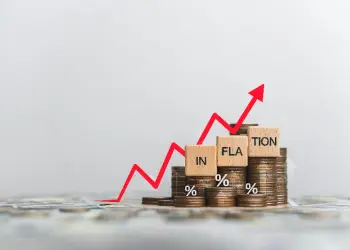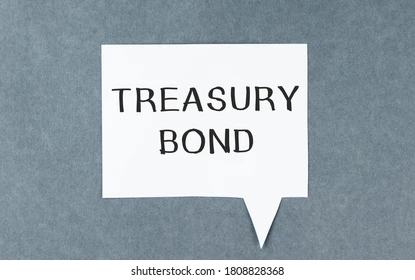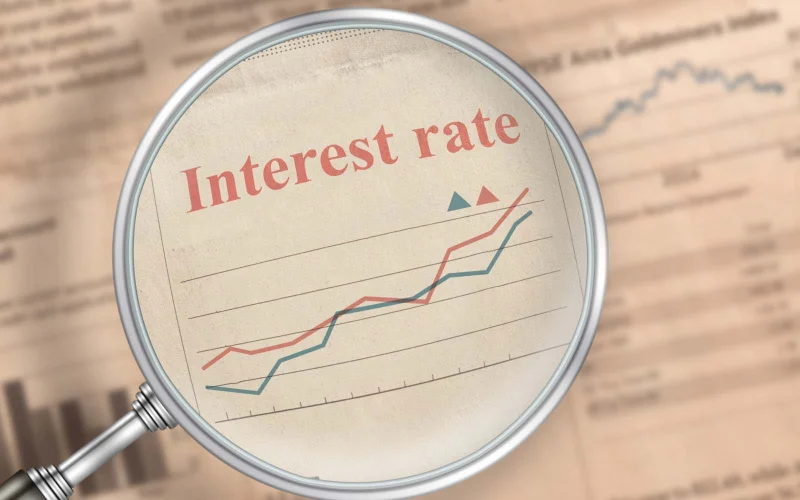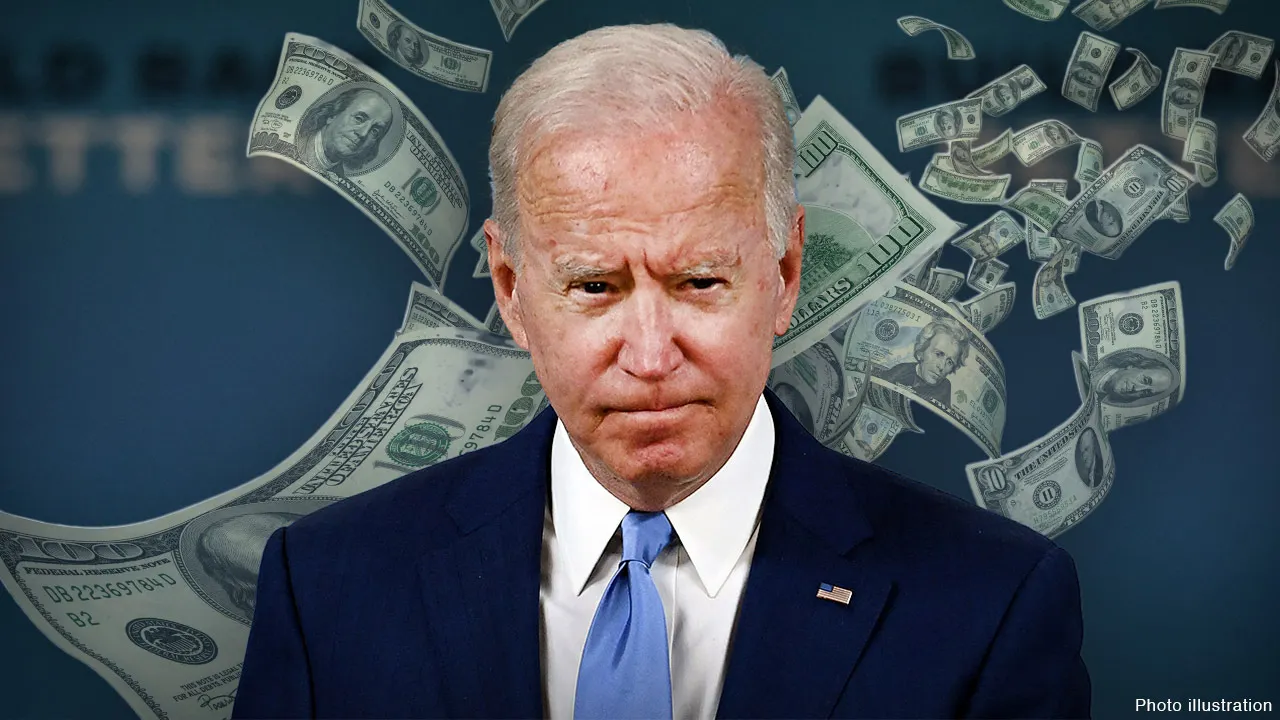trending
neon
Cirque du Soleil offers summer ticket deals
dining out
Celebs ditch the Strip for iconic Henderson restaurant
july 
trending
neon
Cirque du Soleil offers summer ticket deals
dining out
Celebs ditch the Strip for iconic Henderson restaurant
july 

With shifting U.S. economic policies, investors are adjusting their strategies to respond to new market dynamics. This article explores the key policy changes and their influence on investment decisions




The U.S. economy is constantly evolving, influenced by changes in economic policies that shape everything from interest rates to trade regulations. These policies not only affect the national economy but also directly impact individual investors, businesses, and financial markets. With new economic policies in place or being proposed, understanding how these shifts influence investment trends is essential for making informed investment decisions in 2025 and beyond.
1. Federal Reserve Policies and Interest Rates
The Federal Reserve’s monetary policies are some of the most influential drivers of market trends. By adjusting interest rates, the Fed can either encourage or slow down economic growth. Lower interest rates typically make borrowing cheaper, which boosts consumer spending and business investment, but it can also lead to inflationary pressures. Higher rates, on the other hand, tend to cool down an overheating economy but can have a negative effect on stock prices and corporate profits.
For investors, understanding the Fed’s interest rate policies is key to anticipating changes in bond yields, stock market movements, and sector performance. Sectors like real estate, utilities, and technology are particularly sensitive to changes in interest rates.
2. Fiscal Stimulus and Government Spending
In times of economic downturn or uncertainty, fiscal stimulus programs are often enacted by the government to inject money into the economy and boost growth. These policies can include direct payments to individuals, tax cuts for businesses, or increased government spending on infrastructure projects.
For investors, these policies can create opportunities in sectors that directly benefit from increased government spending, such as construction, renewable energy, and healthcare. Understanding where fiscal stimulus is targeted can help investors identify industries that may outperform in a given economic climate.
3. Tax Policy Changes
Changes in tax policy can have a significant impact on investment behavior. Corporate tax rates, for instance, influence businesses’ profitability and their ability to reinvest in growth. A reduction in corporate taxes may encourage more corporate spending, which could result in higher stock prices. On the other hand, capital gains taxes can impact investment returns, influencing individuals’ decisions to sell assets.
As tax reforms continue to evolve, investors should stay aware of potential changes in the tax code that could affect the tax treatment of income, dividends, and capital gains.
4. Trade Policies and Global Trade Dynamics
U.S. trade policies, including tariffs, import-export restrictions, and trade agreements, can significantly alter the landscape for investors. Policies that favor free trade tend to encourage global investment and improve the performance of multinational corporations, while protectionist policies may make foreign markets more challenging for U.S. investors to navigate.
Shifts in trade dynamics can lead to volatility in commodity prices, especially for industries reliant on imported raw materials, such as manufacturing and technology. Investors should be mindful of these trade policy changes to evaluate risks and rewards for certain asset classes.
5. Labor Market and Employment Policies
Employment-related policies, such as minimum wage laws, labor union regulations, and unemployment benefits, affect the labor market’s stability and consumer spending power. A robust labor market can fuel economic growth and create a positive environment for investors, especially in consumer-driven sectors like retail and automotive.
Conversely, stricter labor laws or reduced employment opportunities could impact corporate earnings, especially in labor-intensive industries. Investors must track labor market trends and anticipate how new policies may influence economic conditions and market performance.
1. Shift Toward Technology and Innovation
As economic policies continue to emphasize innovation and technology-driven growth, there has been a marked shift in investment trends towards the technology sector. With growing investments in artificial intelligence (AI), automation, and green technologies, investors are flocking to these high-growth industries. Government incentives, such as research and development (R&D) tax credits and subsidies for green energy projects, have made technology stocks particularly attractive to investors.
This trend is likely to continue as the U.S. government focuses on fostering innovation to maintain global competitiveness. Investors are increasingly focusing on startups and venture capital opportunities in sectors like FinTech, health tech, and clean tech, which benefit from supportive economic policies.
2. Increased Focus on ESG Investing
Environmental, Social, and Governance (ESG) investing has been a major trend reshaped by both government regulations and public opinion. As policymakers introduce new regulations aimed at promoting sustainable business practices, investors are increasingly looking to support companies that are aligned with environmental sustainability, social responsibility, and strong corporate governance.
The U.S. government's push for green energy and carbon reduction goals has led to increased capital inflows into clean energy companies, electric vehicles (EVs), and sustainable agriculture. As more investors align their portfolios with ESG principles, these policies are reshaping market trends and creating new opportunities.
3. Real Estate Investment Opportunities
Government policies in housing, particularly the tax incentives for homebuyers and mortgage interest deductions, can influence the performance of the real estate market. Moreover, urban renewal programs and incentives for affordable housing development can provide new avenues for real estate investment trusts (REITs) and property developers.
Shifting interest rates and fiscal stimulus can also impact housing demand. Lower rates tend to make real estate more attractive, while higher rates may dampen housing affordability, leading investors to pivot their strategies.
4. Rising Popularity of Alternative Investments
As U.S. economic policies continue to evolve, alternative investments such as private equity, cryptocurrency, and commodities have seen increased interest. Many investors are diversifying into these non-traditional assets as a hedge against market volatility and economic uncertainty.
The government’s evolving stance on cryptocurrency regulation and commodities trading will likely continue to shape investment strategies, with policies providing clearer guidelines and protections for investors in these markets.
To navigate the changing landscape of U.S. economic policies, investors should focus on strategies that are adaptable to shifting regulations. Key strategies include:
With shifting U.S. economic policies, investors are adjusting their strategies to respond to new market dynamics. This article explores the key policy changes and their influence on investment decisions
the latest

Banking System Reforms: How They Affect Your Savings and Investment Accounts
Banking system reforms are reshaping the financial landscape, and these changes could impact your savings and investment accounts. From interest rates to new regulations, understand how these reforms will affect your financial future. This article provides insights into the potential implications and how you can adapt your strategy to thrive in the evolving financial environment

Inflation vs. Investment: What to Do with Your Money in 2025
As inflation continues to challenge global economies, understanding how to protect and grow your wealth becomes more crucial than ever. In this article, we’ll explore how inflation is affecting investments in 2025 and provide expert advice on what to do with your money to safeguard your financial future. Whether you're new to investing or an experienced investor, learn the best strategies for navigating this economic climate.

U.S. Dollar's Rise: Impact on Foreign Exchange and Investments
The strengthening of the U.S. dollar is shaking up global markets, affecting everything from foreign exchange rates to international investments. In this article, we analyze how the dollar's rise impacts global trade, investment strategies, and economic stability. Understanding these effects is crucial for businesses and investors navigating the increasingly globalized financial landscape

Treasury Bond Yields Hit Record Lows: What It Means for You
Treasury bond yields have reached record lows, marking a significant shift in the financial landscape. As yields decline, the return on investments such as bonds and savings accounts also decreases. This article discusses the potential impact of these record-low yields on various forms of investment and offers guidance on how to navigate these changes in the financial market

Interest Rate Hikes: How It’s Affecting Personal and Corporate Finances
Rising interest rates are reshaping both personal and corporate finances. From mortgages and credit card payments to business borrowing costs and profits, the effects are profound. As central banks increase rates to curb inflation, both consumers and companies are adjusting their financial strategies. This article explores the current and long-term impacts of interest rate hikes on the economy.

Biden’s Economic Plan: Effect on Dollar & Money Supply
The economic policies introduced by President Biden have far-reaching implications for the U.S. dollar and the broader money supply. With the country facing various challenges, including inflation and recovery from the pandemic, Biden's approach involves major fiscal changes that could significantly affect the financial landscape

New Cryptocurrency Regulations Impacting Retail Investors in the U.S.
Recent changes to cryptocurrency regulations in the United States are having significant effects on retail investors. This article explores the new rules and what they mean for individuals looking to invest in digital currencies.

How U.S. Investment Policies Shape Financial Stability
U.S. investment policies play a crucial role in shaping financial stability by influencing capital markets, interest rates, and economic growth. Regulatory frameworks and government interventions determine risk levels, investor confidence, and long-term economic sustainability

How U.S. Economic Policies Are Reshaping Investment Trends
With shifting U.S. economic policies, investors are adjusting their strategies to respond to new market dynamics. This article explores the key policy changes and their influence on investment decisions